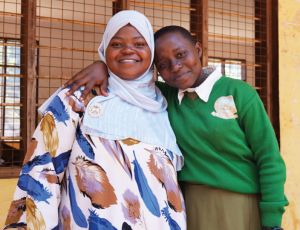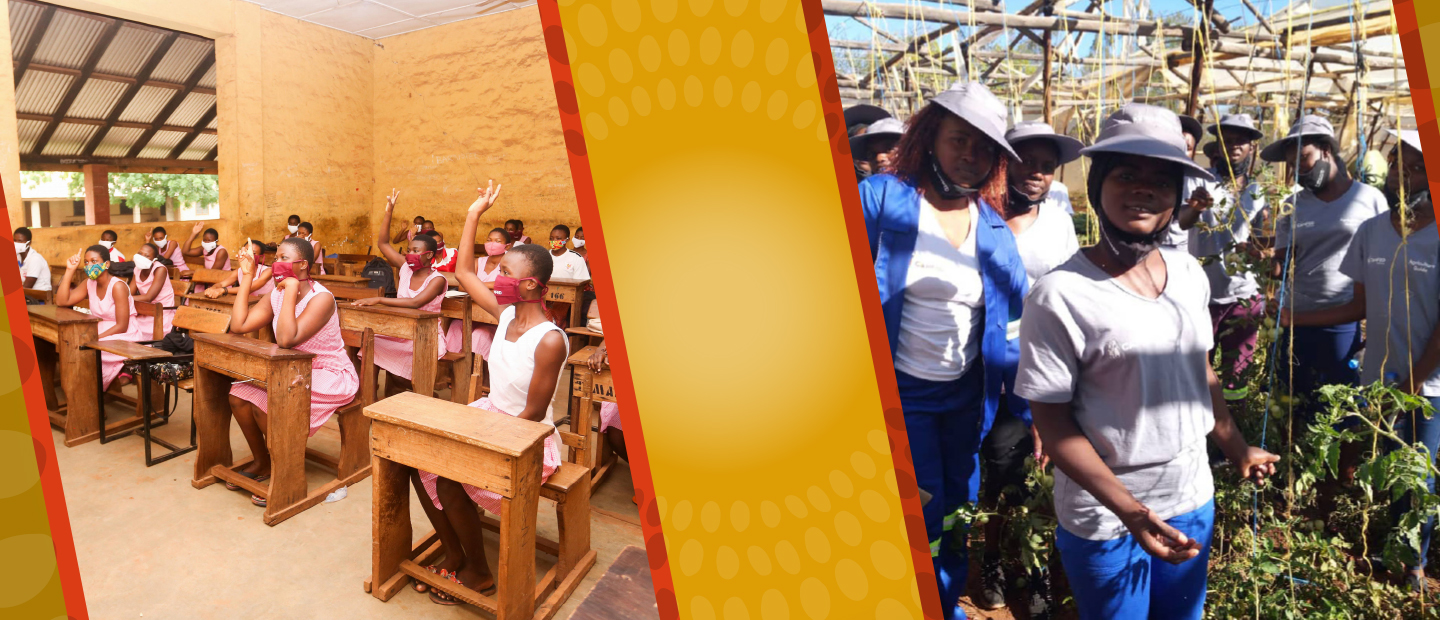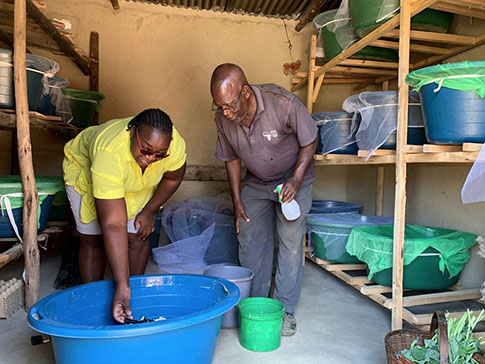
When she thrives, we all thrive
Together this giving season, we can make a difference that ripples outward to benefit everyone.


As part of a new series, developed with the Royal Geographical Society, BBC Radio 4 is exploring 39 ways in which people around the globe are taking pioneering action on climate change. In the episode ‘Educating and Empowering Girls’, broadcaster Tom Heap speaks to Fiona Mavhinga, CAMFED’s Executive Advisor working on strategic development with the CAMFED Association of women leaders, and Esnath Divasoni, a Core Trainer of CAMFED climate-smart Agriculture Guides, and sustainable protein entrepreneur in Zimbabwe. Both women were supported in their education by CAMFED. Now, living proof of the power of education, they underscore the active benefits of supporting girls through school — from agency, independence, health and earning power to practical and policy leadership on climate issues.
I plan on training around 200 farmers [to start climate-smart insect protein businesses]. It’s basically my way of giving back to the community that chose me a long time ago to benefit in terms of education. If they did not support me, I wouldn’t have been able to develop these inspiring ideas.
Esnath Divasoni, CAMFED Core Trainer of climate-smart Agriculture Guides, Zimbabwe
In the BBC interview, Fiona underscores the countless positive outcomes of female education and empowerment — as young women gain agency, increasing their life choices, earning potential, health and wellbeing, as well as the ability to support the education of their children or others in their community. Importantly, it unlocks women’s incredible leadership potential, including in the sphere of climate action, helping to create a gender equal world. Another consequence of opening up life choices through education and access to family planning is slower population growth, which helps to break the cycle of poverty, easing the strain on the Earth’s resources.
Esnath, one of more than 157,000 young women leaders in the CAMFED Association, provides an example of the power of women’s leadership.
Following support from CAMFED at secondary school and university, she is playing a key role in embedding our climate-smart Agriculture Guide Program across Zimbabwe. On Radio 4 she also highlights her own business, which centers on producing edible insects as a sustainable and affordable protein source in her community.

Esnath and her father tending to the crickets, which offer a sustainable, climate-friendly form of protein. Together with CAMFED core trainer Vivian Chisenga, Esnath has been training other young women “Agriculture Guides” in Zimbabwe to support school graduates with climate-smart agriculture expertise. CAMFED was recognized with the UN Climate Action Award in 2019. (Photo: BBC)
Listen to Fiona and Esnath in the BBC climate podcast
Discover how girls’ education and gender equality are at the core of effective climate action
Margaret Monaghan $10.9
Helen Lea $157
Julia Thompson $100
Joan Goldfeder $211
Bonnie Riggins $10.9
Michael Higgins $13
Cheryl Johnson $5.6
Amy Casciano $10.9
Valerie Turner £40
joyce Davidson $16.1
FRANK BAUDINO $26.6
Markus Rockström €37.2
Chiara Starvaggi Cucuzza €37.2
Bonnie Hollrah $52.9
Karen Thomas $158